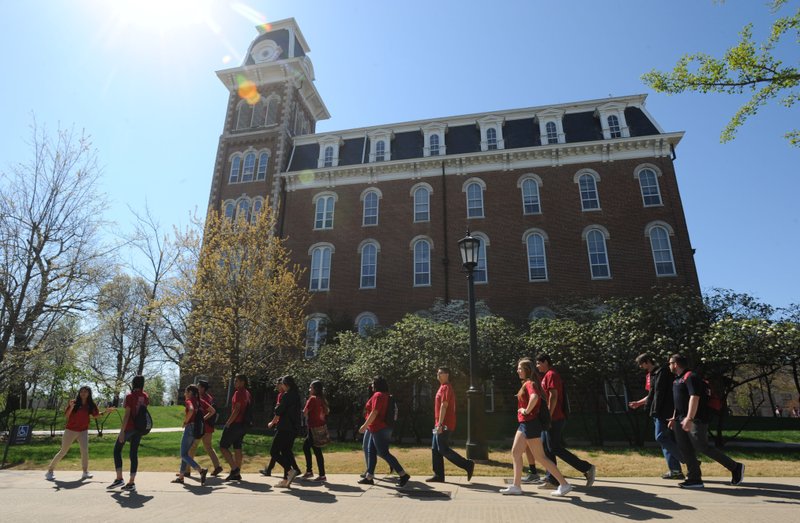FAYETTEVILLE -- Three separate grants of about $1 million from the National Science Foundation aim to increase diversity in science, technology, engineering and mathematics fields at the University of Arkansas, Fayetteville.
The university plans to recruit a cohort of 12 doctoral students from underrepresented racial and ethnic groups with help from a Louis Stokes Alliance for Minority Participation grant award, said Jorge Almodovar, an assistant professor of chemical engineering at UA and site director for the project. Each student will receive a stipend of $32,000 and additional support.
"The heart of this project is not only the stipend, but the support network and training opportunities that will be provided to these students," Almodovar said in an email.
A separate grant award is for recruiting and retaining women faculty at UA, with a focus on fields in science, technology, engineering and mathematics, or STEM.
The grant, through what's known as the NSF ADVANCE program, will help with what's an important way to make these science and technology fields more accessible to students, said Shauna Morimoto, an associate professor in UA's Department of Sociology and Criminology and the project's principal investigator.
"Young women and even girls are much more likely to be attracted to fields where they see women being successful," Morimoto said.
A third grant award will provide scholarships for two cohorts of 16 low-income students in UA's Honors College Path Program.
The grant, in the amount of $941,348, is provided by the NSF's Closing America's STEM Innovation Gap through Collaboration with Industry program. It will also support "innovation" courses at UA involving industry partners, according to the university's announcement.
In Arkansas, efforts to boost minority participation in STEM through the NSF's Stokes Alliance program began in 2008 and now include as program participants four public universities, a private university and three two-year colleges, said Anissa Evans Buckner, a biology professor at the University of Arkansas at Pine Bluff and co-principal investigator for the program.
Along with UA and UAPB, participating schools are Arkansas State University, Phillips Community College of the University of Arkansas, Philander Smith College, Southeast Arkansas College, the University of Arkansas at Little Rock and and University of Arkansas Pulaski Technical College
The alliance "is a pipeline to get students through college into graduate school and ultimately into STEM careers," Evans Buckner said in an email.
She said student participants "will be poised to join the ranks of academia at the University of Arkansas-Fayetteville once they have received the proper training and exposure."
Morimoto said that while the NSF ADVANCE grant has a focus on STEM fields, "part of the goal of the grant is for it to be a catalyst for transformation for the university as a whole."
Data on UA's website show faculty for each college by race and gender. In UA's engineering college, 32 out of 147 faculty members are women, 0r about 22%, according to the university's count. For the engineering college, two faculty members are Black and three are Hispanic, according to the university's data.
